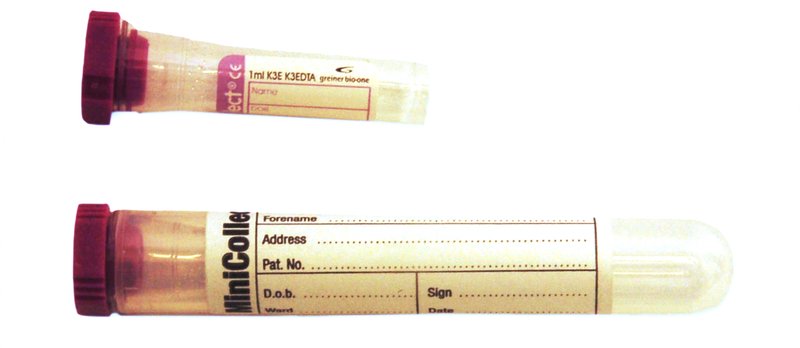Phytanic acid
Chemical Pathology
Notes
Phytanic acid is used in the diagnosis of both infantile and adults forms of Refsum’s disease.
Adult Refsum’s disease is an autosomal recessive disorder of phytanic acid metabolism. The incidence is thought to be around 1 in 1,000,000. Onset is during late childhood or adulthood. Presentation may include retinitis pigmentosum, ataxia, chronic polyneuropathy, deafness, anosmia, ichthyosis, cardiac abnormalities and skeletal abnormalities (metatarsal shortening).
Infantile Refsum’s disease is a peroxisome biogenesis disorder that has autosomal recessive inheritance. Patients with infantile Refsum’s disease can present with retinopathy, deafness and mild dysmorphism.
Sample requirements
For adults, blood taken into a 4ml EDTA tube.

For children, blood taken into a 2mL EDTA tube

For neonates, blood taken into a 1mL minicollect EDTA tube

Storage/transport
Send at ambient temperature to the laboratory on same day as sample collection.
Required information
Relevant clinical details including details of clinical presentation.
Turnaround times
Samples are sent for analysis at the North Bristol NHS Trust with a result expected back within 2 weeks.
Reference ranges
The reference range for phytanic acid is <16 µmol/L.
- Patients with adult Refsum’s disease usually have raised phytanic acid, but normal very long chain fatty acids and low pristanic acid.
- Similar results can be seen in type 1 rhizomelic chondrodysplasia punctata (another peroxisomal disorder).
- Patients with infantile Refsum’s disease have a number of different biochemical abnormalities in addition to a raised phytanic acid level.
Further information
To learn more visit the National Metabolic Biochemistry Network or the Adult Refsum's disease website